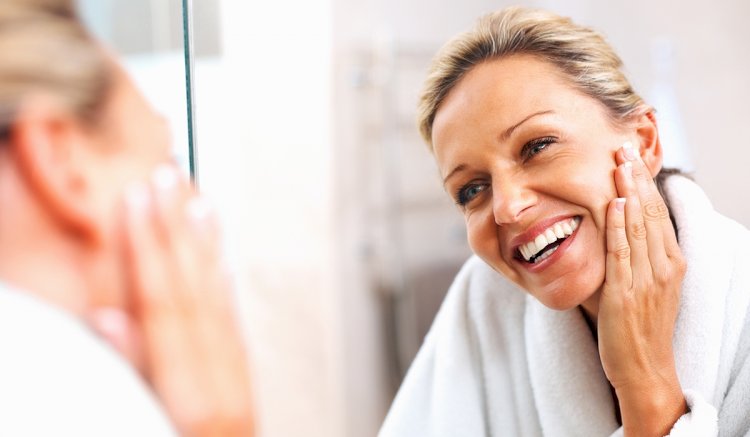Here Is A Short Account Of The Effects Of Aging On Skin
Skin is seen to be aging due to various reasons. Here are those factors. Help protect your skin with some of these tips.

The Factors Affecting The Skin
At the mercy of many forces in our skin as we age including sun, harsh weather, and bad habits. To help our skin stay supple and fresh-looking there are steps we can take.
Depending on a variety of factors is how the skin ages including lifestyle, diet, heredity, as well as other personal habits. Smoking can produce free radicals, that are once-healthy oxygen molecules that are now overactive and unstable for instance. Among other things, free radicals damage cells leading to premature wrinkles.
Here other reasons are also observed. Normal aging, exposure to the sun, as well as pollution, and loss of subcutaneous support are the primary factors contributing to wrinkled, spotted skin. Stress, gravity, daily facial movement, obesity, and even sleep position are other factors contributing to the aging of the skin.
Here Are The Skin Changes That Come With Age
Changes like the following naturally occur as we grow older:
- Here skin becomes rougher
- Observed to develop lesions like benign tumours.
- With the loss of the elastic tissue, skin becomes slack causing the skin to hang loosely when they age.
- Caused by thinning of the epidermis, the skin becomes more transparent.
- The skin is more fragile caused by the flattening of the area where the epidermis and dermis come together.
- Due to thinner blood vessel walls, the skin becomes more easily bruised.
As we age, there are also changes below the skin becoming evident that include:
- In the cheeks, temples, chin, nose, and eye area, loss of fat below the skin may result in loosening skin, sunken eyes, and a skeletal appearance.
- Mostly around the mouth and chin, bone loss may be evident after the age of 60 causing puckering of the skin around the mouth.
- Causing drooping of the nasal tip and accentuation of the bony structures in the nose is the cartilage loss in the nose.
The Effect Of Sun On The Skin
The single biggest culprit in aging skin is exposure to sunlight.
The sun’s ultraviolet light damages certain fibres in the skin called elastin, over time. Causing the skin to sag, stretch, and lose its ability to snap back after stretching is the breakdown of elastin fibres. Taking longer to heal, the skin also bruises and tears more easily. It will show up later in life while sun damage may not show when you are young.
Although the skin can sometimes repair itself, nothing can completely undo the sun's damage. Some of the damage can be reversed with the help of a laser. To begin protecting yourself from sun exposure and skin cancer, it is never too late. By staying out of the sun, covering up, wearing a hat, and making a habit of using sunscreen helps delay changes associated with aging.
Other Skin Changes
The secondary factors contributing to changes in the skin are gravity, facial movement, and sleep position. Gravity causes drooping of the eyebrows and eyelids, looseness, and fullness under the cheeks and jaw, and longer ear lobes when the skin loses its elasticity.
After the skin starts losing its elasticity, facial movement lines become visible. It is found that lines come to appear horizontally on the forehead, vertically on the skin above the root of the nose as well as small curved lines on the temples, upper cheeks, as also around the mouth.
Becoming more visible after the skin starts losing its elasticity, sleep creases result from the way the head is positioned on the pillow. Starting above the eyebrows to the hairline near the temples, as well as in the middle of the cheeks, sleep creases are commonly located on the side of the forehead. Preventing them from becoming worse, sleeping on your back may improve these sleep creases.
Thannonsmokers of the same age, complexion, and history of sun exposure, smokers tend to have more wrinkles.
In later life, dry skin and itching are common. As overheated indoor air is dry about 85% of older people develop winter itch. Worsening dry skin is the loss of oil glands as we age. Making the problem worse is anything that further dries the skin. As this condition can affect your sleep causing irritability, see a doctor if your skin is very dry and itchy or it is a symptom of the disease. Making itchiness worse are some medicines.
The Conclusion
Aging has many reasons. Finding the one affecting you can help protect your skin. There are a variety of chemicals coming in the form of sunscreen that helps keep aging under control when the reason is excess exposure to the sun rays in the day time.
What's Your Reaction?





















